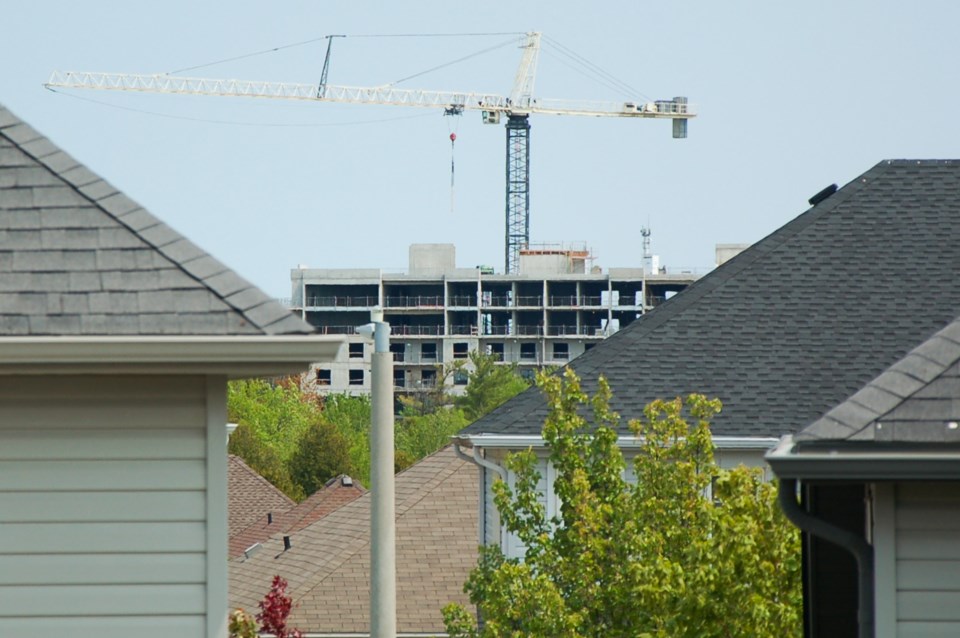As efforts to combat the housing affordability crisis build steam, city council is set to consider taking a wide range of actions – from buying land or existing multi-unit buildings for affordable housing projects, to implementing a renoviction bylaw, exploring planning approval process changes and much more.
“In the next 30 years, Guelph will keep growing. To stay balanced and sustainable, Guelph needs more types of homes for everyone, including housing with a range of affordability,” states the city’s draft housing affordability strategy which will be presented to council for discussion on Oct. 8; final recommendations are expected in December.
“To support this growth, Guelph will need 29,200 more housing units, a 52 per cent increase.”
The city’s population is provincially mandated to grow to 208,000 by 2051, from about 145,000 currently.
About one-third (8,700) of the new units should be affordable, the report states, calling for a mixture of affordable rentals and affordable ownership.
The provincial government set the affordable ownership price in Guelph at $398,800 or less, with affordable monthly rental prices determined by the type of unit – $1,160 or less for a bachelor unit, $1,508 or less for one bedroom, $1,646 for two bedrooms and $1,695 or less for three bedrooms.
According to rentals.ca, a one-bedroom apartment in Guelph cost $2,073 and a two-bedroom rental cost $2,440. Guelph is identified as the 12th most expensive city for rentals in Canada during August.
“There are households in Guelph that cannot afford the average home in Guelph without assistance. If you are a renter in Guelph, rents have risen too fast for your income to keep up,” the report notes. “With more affordable housing options needed for everyone, it is critical that our housing affordability strategy’s actions focus on making it easier for affordable housing units to be built as consistently and collaboratively as possible, given the limited tools that we have.”
The draft strategy includes 33 recommended action items. Many of them involve advocacy work, community education and monitoring the crisis.
Among the others are:
- purchase lands to build affordable housing that would be managed by Wellington County
- consider a special tax on vacant homes as well as a renoviction bylaw
- identify city-owned properties that could be converted for affordable housing purposes
- consider the purchase of multi-unit buildings on the market that could be turned into for affordable housing
- establish financial incentives for affordable housing development, housing accessibility, and sustainable housing design
- explore opportunities for a front-ending development agreements with builders, which would see them pitch in toward the cost of city services before construction begins
- set a minimum dollar amount to be annually allocated to the city’s affordable housing reserve fund to help advance affordable housing initiatives
- identify an annual target of new housing units that must be designed as universally accessible.
What would be the cost of implementing the draft recommendations? That’s not currently known.
“Planning and finance (staff is) working through the financial implications of the proposed strategy, and an estimate of the costs associated with implementing this strategy will be included with the final Housing Affordability Strategy proposed to council for approval in December,” states a staff report heading to council along with the draft strategy.
Final recommendations from staff are expected to be presented to city council for consideration on Dec. 10.
Public input is expected to be sought during five events organized by city staff between Oct. 15 and 24, though no specific details have been announced at this time.
The deadline to register as a delegate or make a written submission for the Oct. 8 council meeting is Oct. 4 at 10 a.m. To register, visit guelph.ca/delegation, call 519-837-5603 or email [email protected].
